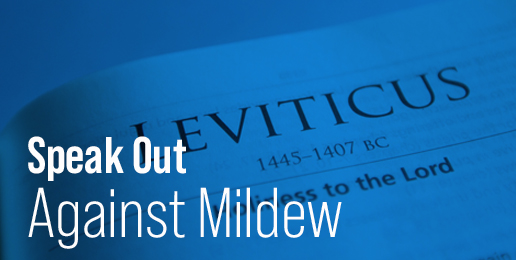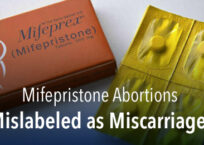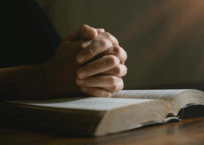
The Mosaic law is one giant picture book.

Turn to almost any page and you’ll find imagery teaching you about God. You’ll find specifications for the priesthood illustrating Christ’s mediation and showing how holy God is. You’ll find records of the Israelites’ many blunders into sin that show us just how serious our own blunders are.
And because the history of Israel was written down for us as examples and warnings (1 Corinthians 10:11), we are expected to take their examples to heart even today. All aspects of the law teach us truths that are directly applicable to ourselves (2 Timothy 3:16); sometimes it just takes a bit of thought.
So let’s think for a minute about one particular law that people rarely talk about: the law for mildewing houses (Leviticus 14:33-57).
In the middle of a book that established many of the nation’s religious ceremonies and festivals at great length, God took time to tell the Israelites what to do if they found mildew in their houses.
And the detailed procedure He gave them is remarkably similar to how we might handle biohazards today.
1) The house was to be emptied
2) The priest was to inspect the mildew
3) If the mildew was serious, the house was to be closed up for seven days
4) If the mildew had spread after seven days, the contaminated stones were to be removed and replaced and the inside of the house scraped and replastered
5) If the mildew reappeared and spread, the house was to be torn down
Thousands of years before our “civilized” world discovered micro-organisms, God was giving the Israelites common-sense regulations about how to deal with them—remove anything that could be contaminated, then remove the contamination, and then, if it’s not working, get rid of the structure.
These rules kept the Israelites healthy and clean.
But—just like the Passover regulations were about real lambs but also symbolized Christ—I think that the mildew regulations give us a vivid picture of how we ought to deal with sin, both in our own lives and in society at large.
Why? Because the basic, fundamental point the mildew laws teach us is that when a contaminating influence arrives on the scene, the worst thing you can do is ignore it. It only takes over more ground and gets more people sick as time goes on.
As 18th-century commentator Matthew Henry wrote about this passage,
“The leprosy in a house is unaccountable to us, as well as the leprosy in a garment; but now sin, where that reigns in a house, is a plague there, as it is in a heart. Masters of families should be aware, and afraid of the first appearance of sin in their families, and put it away, whatever it is. If the leprosy is got into the house, the infected part must be taken out. If it remain in the house, the whole must be pulled down. The owner had better be without a dwelling, than live in one that was infected.”
In giving the Israelites a command that makes scientific common sense, I believe God was also giving us a picture of how seriously we ought to take sin.
When schools start indoctrinating children into the next dimension of woke-ism, when politicians start pushing for the next level of abortion access, when activist groups start making the next permutation of gender perversion seem all the more normal, we have a moral obligation to speak out.
If we don’t, we are only letting the mildew spread.
This is easier said than done.
God calls us to a life of struggle against sin, one that ought to be so vicious that it is akin to shedding our own blood (Hebrews 12:4). It’s easy to grow weary in speaking the truth when no one seems to be listening. But God tells us to not grow weary while we’re going good; if we don’t lose heart, we will reap a harvest in due time (Galatians 6:9).
And every word we don’t say today is going to be that much harder to say tomorrow.
Let’s take heart as we speak the truth in love, knowing that we are doing our part to eradicate mildew in our house before it irrevocably takes over.



























